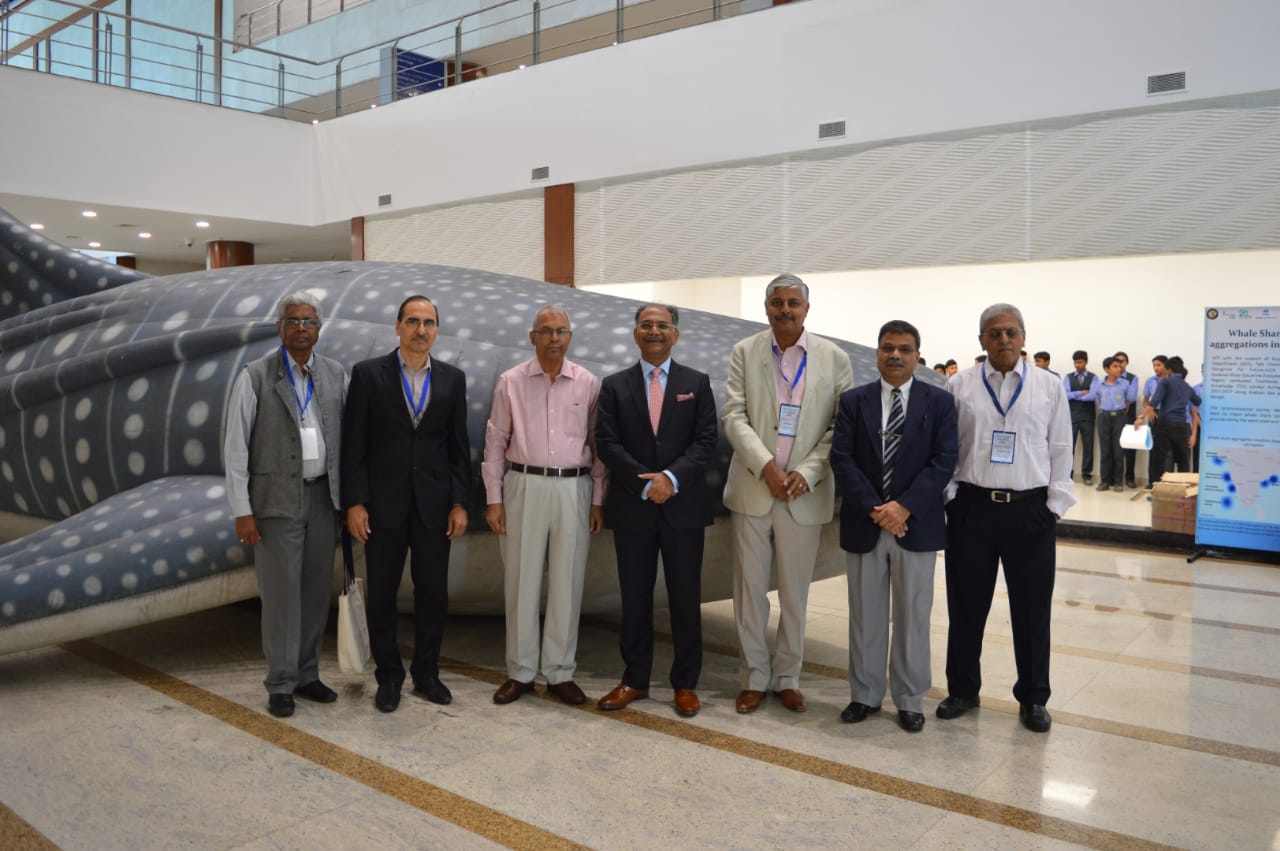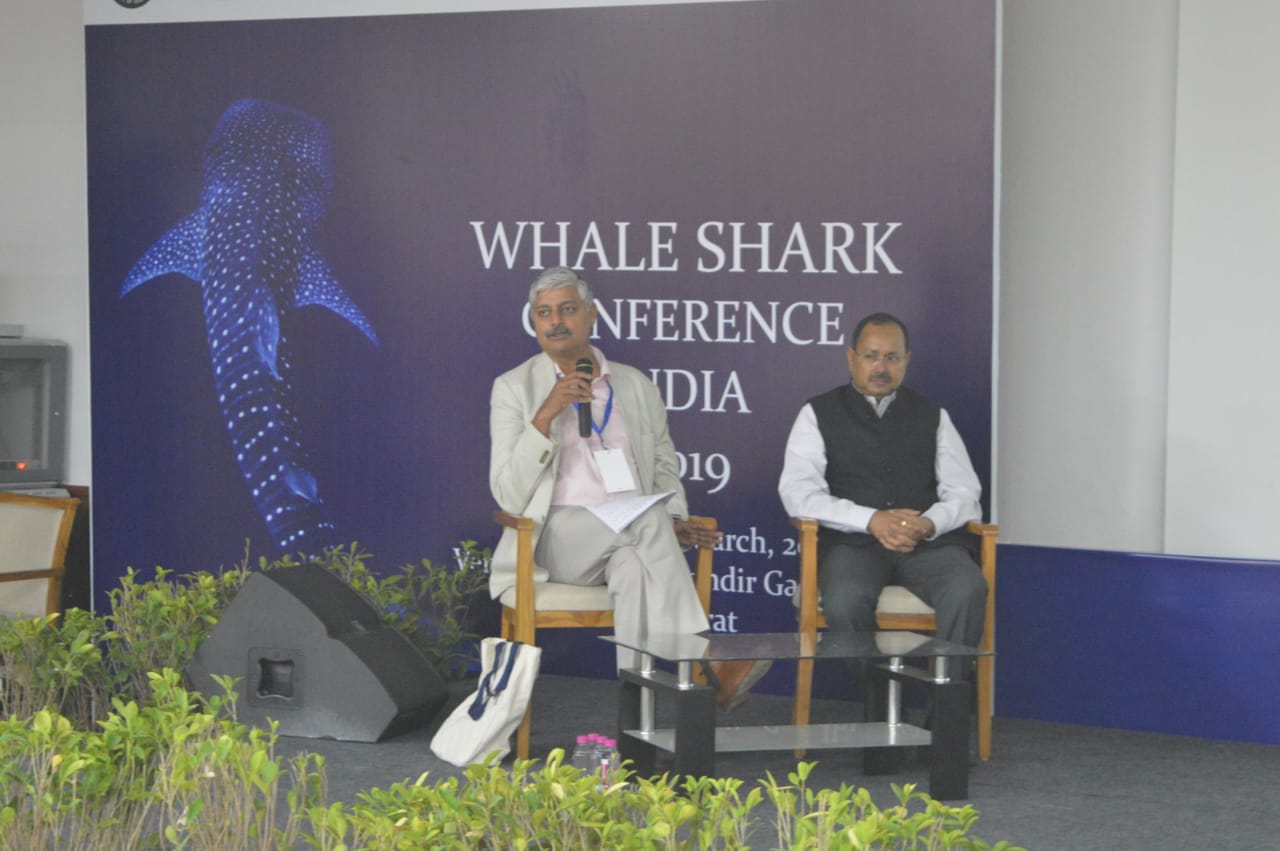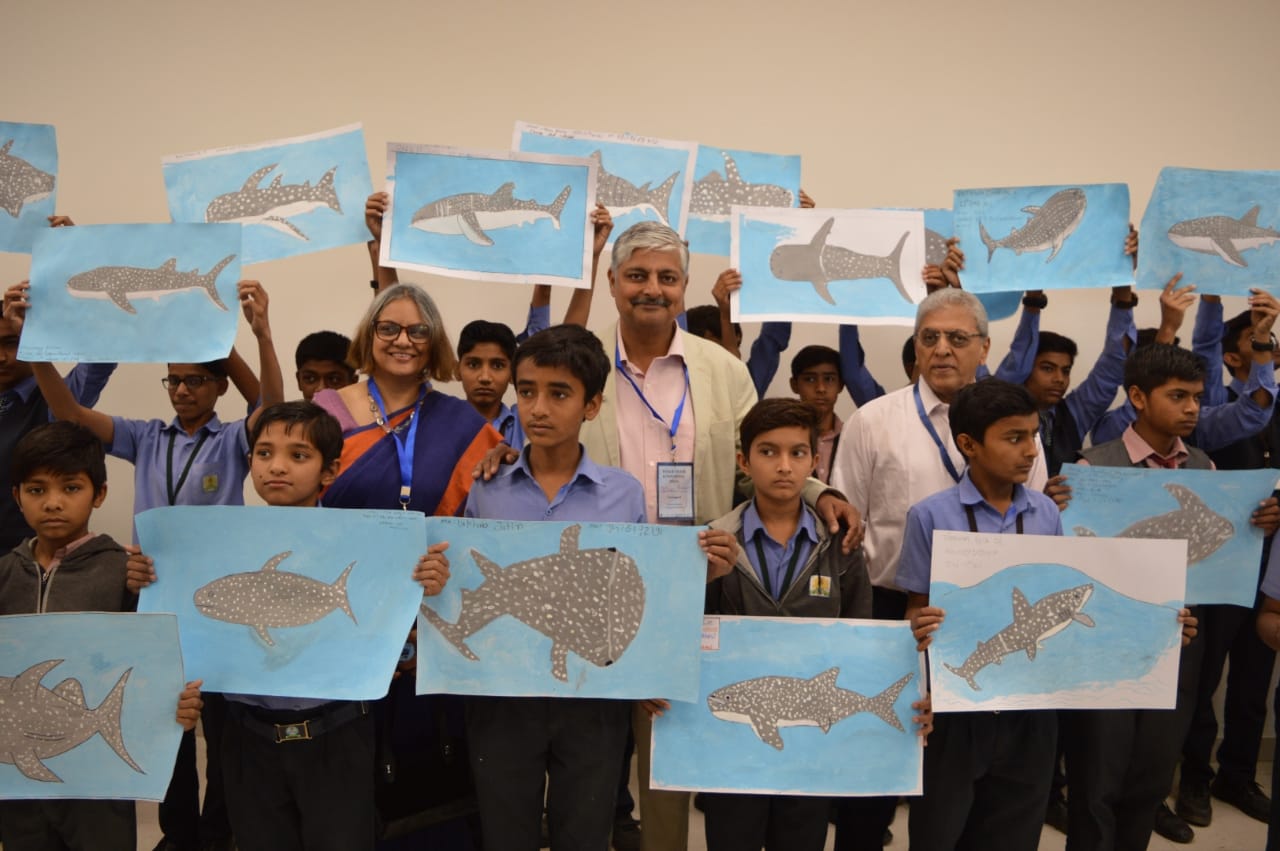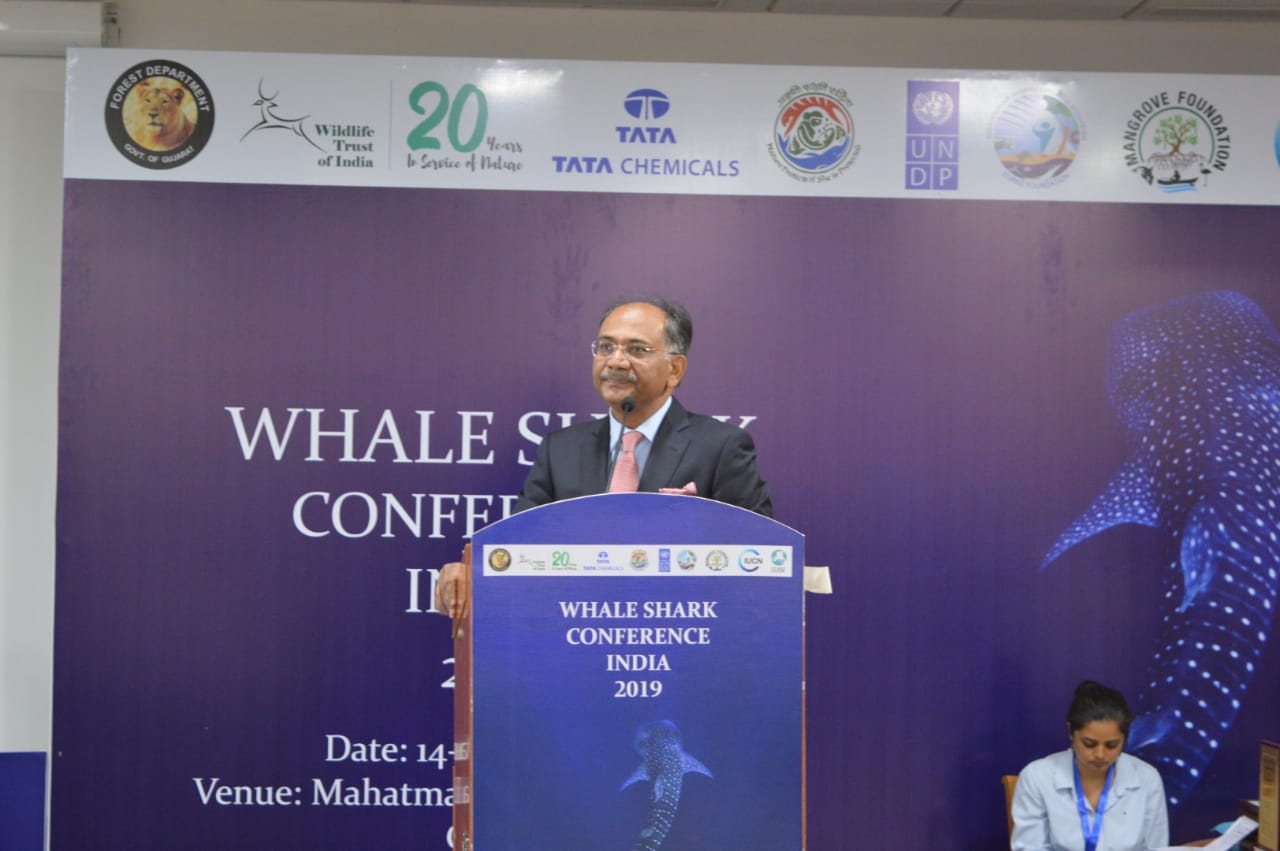Gandhinagar : Wildlife Trust of India recently organised a regional conference to develop whale shark conservation action plans and management framework along the Arabian Sea region. Mahatma Mandir at Gandhinagar saw an aggregation of experts on science, conservation and law enforcement forums from countries along the Arabian Sea and the Bay of Bengal. International and national delegates converged to the maritime state of Gujarat for the first regional conference on Whale Sharks on 14th and 15th March.
The conference deliberations aimed at enabling the development of whale shark conservation action plans and management framework along the northern Indian Ocean region.
Although conservation initiatives to save whale sharks are operational in several countries along this region, they need to be strengthened across whale shark range states owing to globally declining population of this circum-global species.
Whale shark conservation in India is spearheaded by the Wildlife Trust of India in collaboration with Tata Chemicals Ltd. and Forest Dept., Govt. of Gujarat since 2004. The project has converted the hunters of this iconic species into its protectors, thanks to a concerted campaign with Shri Morari Bapu as its influencer. Since the launch of the campaign, fishermen of Gujarat have saved more than 700 whale sharks that were been entangled in fishing nets in the 15 years.




The conference was supported by the Dept. of Forests, Govt. of Gujarat, Tata Chemicals Limited (TCL), Ministry of Environment, Forests and Climate Change (MoEFCC),, East Godavari River Estuarine Ecosystem (EGREE) Foundation, Mangrove Foundation, International Union for Conservation of Nature and Natural Resources (IUCN) and International Fund for Animal Welfare (IFAW).
Shri Akshay Kumar Saxena, Chief Wildlife Warden of Gujarat State said, “the state of Gujarat is proud of its whale shark conservation model in which the fisherfolk who were once the hunters have now turned its protectors”.
Broad themes that were discussed during the conference were Population status, habitat utilisation & distribution; Fisheries interface; Migration, genetics and techniques (field and lab); conservation threats; Community involvement, rescue and tourism; Cross-sectoral coordination; and Policy intervention.
Prof. B C Choudhury, Executive Trustee and Principal Investigator of the project said, “Our conservation action on whale sharks has been based on a systematic scientific investigation of habitat utilisation and migration patterns of whale sharks in the Arabian Sea region and beyond.”
The conference was attended by international whale shark experts including Dr. John Keesing (Senior Scientist, CSIRO, Australia), Dr. Jennifer Schmidt (Director Research-Shark Research Institute, US), Dr. Rachel Graham (Founder & Executive Director, Mar Alliance), James Hancock (Operations Manager, Maldives Whale Shark Research Programme), Lucy Arrowsmith (PhD Student, AIMS, Australia), Dr. Hua Hsun Hsu (KING FAHD UNIVERSITY OF PETROLEUM AND MINERALS, SAUDI ARABIA), Irthisam Zareer (Maldives Whale Shark Research Programme), Md. Mifizur Rahaman (Ichthyologist, Bangladesh Forest Department) and Mariyam Rifga (Environment Protection Agency, Maldives).
The conference proved to be very insightful to the audience. Organisations like Commonwealth Scientific and Industrial Research Organisation (CSIRO), Australia, Australian Institute for Marine Sciences (AIMS), Maldives Whale shark Research Programme, King Fahad University (Saudi Arabia), Shark Research Institute (USA), Mar Alliance (USA), Environment Protection Agency (Maldives) and Bangladesh Forest Department attended the conference.
Experts from various scientific and conservation organisations like National Institute of Oceanography (NIO), Central Marine Fisheries Research Institute (CMFRI), Wildlife Crime Control Bureau (WCCB), Zoological Survey of India (ZSI), IUCN Shark Specialist Group (IUCN-SSG), Wildlife Institute of India (WII), Bharatiya Vidyapeeth (BVIEER), Marine Products Export Development Authority (MPEDA), World Wildlife Fund (WWF), East Godavari River Estuarine Ecosystem (EGREE) Foundation, Wildlife Conservation Society (WCS), Dakshin Foundation and conservationists, recreational divers and dive operators and academia from across the country participated in the event.

a) The yellow portion marked in the map shows the areas where we had participation during the conference.

b) The yellow portion marked in the map shows the areas where we had participation during the conference.